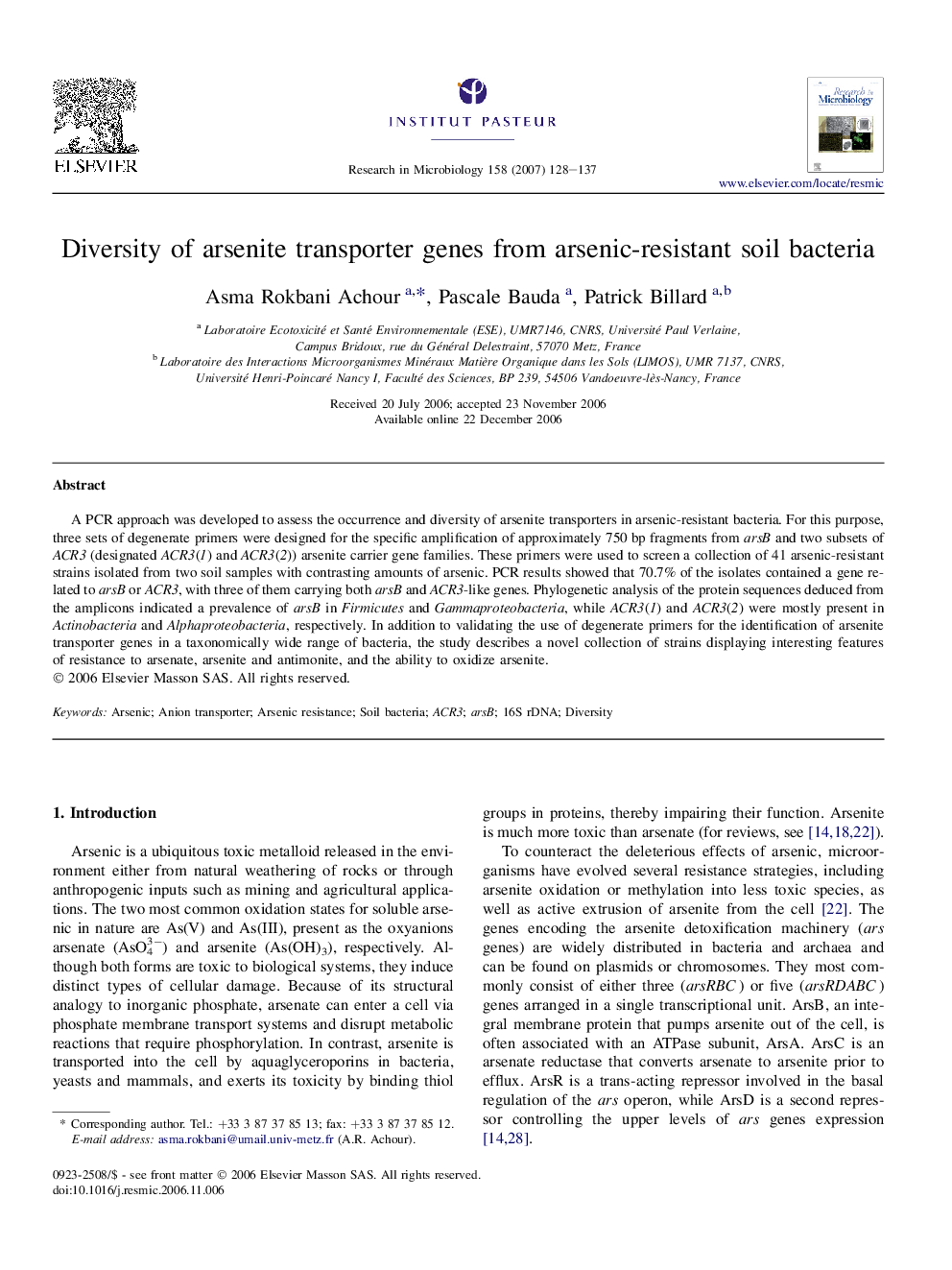| Article ID | Journal | Published Year | Pages | File Type |
|---|---|---|---|---|
| 4359355 | Research in Microbiology | 2007 | 10 Pages |
A PCR approach was developed to assess the occurrence and diversity of arsenite transporters in arsenic-resistant bacteria. For this purpose, three sets of degenerate primers were designed for the specific amplification of approximately 750 bp fragments from arsB and two subsets of ACR3 (designated ACR3(1) and ACR3(2)) arsenite carrier gene families. These primers were used to screen a collection of 41 arsenic-resistant strains isolated from two soil samples with contrasting amounts of arsenic. PCR results showed that 70.7% of the isolates contained a gene related to arsB or ACR3, with three of them carrying both arsB and ACR3-like genes. Phylogenetic analysis of the protein sequences deduced from the amplicons indicated a prevalence of arsB in Firmicutes and Gammaproteobacteria, while ACR3(1) and ACR3(2) were mostly present in Actinobacteria and Alphaproteobacteria, respectively. In addition to validating the use of degenerate primers for the identification of arsenite transporter genes in a taxonomically wide range of bacteria, the study describes a novel collection of strains displaying interesting features of resistance to arsenate, arsenite and antimonite, and the ability to oxidize arsenite.
